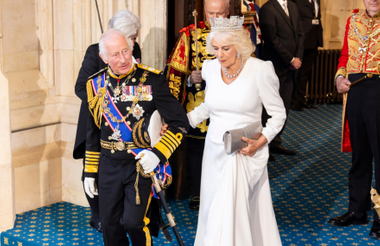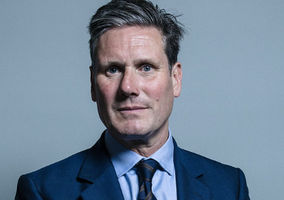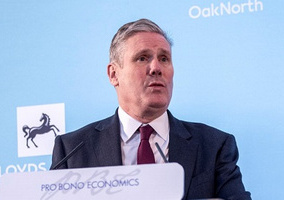Charities have given a mixed response to the first king’s speech under Keir Starmer’s government, delivered by King Charles yesterday following Labour’s general election victory.
Written by the government, the speech set out its plans to remove the VAT exemption for private school fees, devolve more power to local metro mayors and combined authorities and speed up the delivery of infrastructure and housing.
Some charity leaders were encouraged by the speech, which also included announcements on mental health, domestic violence and young people, while others criticised its failure to address certain issues.
Jane Ide, chief executive of ACEVO, said many of Labour’s ambitions outlined in the speech on some issues “can only be delivered successfully by including civil society as a key partner”.
“I very much welcome the explicit commitment to rebuilding trust and confidence in the political system and strengthening the democratic process, and many of our members will be keen to use their legitimate campaigning voices to ensure that the good intents set out do not fall short of what their beneficiaries need or have unintended consequences for the people they serve,” she said.
“While we still await the appointment of a minister with responsibility for civil society, I’m looking forward to meeting secretary of state Lisa Nandy very soon and discussing with her further the contribution civil society can make to the delivery of the government’s five missions.”
NPC’s head of policy and external affairs Leah Davis said the speech presented an “opportunity for charities and philanthropists to offer their assistance in delivering change across the country”.
“We welcome the overall commitment to fairness which is driving this government’s agenda,” she said.
“We also welcome the focus on local growth, because it’s often in local communities where charities and funders can make the biggest difference in removing barriers and creating new opportunities.
“Bills to improve some of the big challenges affecting society – including improving mental health provision, particularly for children and young people, and creating new green jobs to respond to the environmental crisis – are much needed.
“We look forward to working with the new government to ensure that these bills are inclusive and effective for everyone.”
Sarah Elliott, CEO of NCVO, said: “Key to making sure these bills are successful - whether it be Employment Rights, banning conversion therapy, or halving violence against women and girls - is policy-makers working in close partnership with the charity and voluntary sector.
“We, and our members, stand ready to bring our wealth of experience and understanding to the table to make sure that this legislative agenda is as effective and impactful as possible in tackling some of the biggest challenges facing our communities.”
Devolution bill ‘a major opportunity’
The speech’s background briefing notes state that the English devolution bill will give local communities “a strong new ‘right to buy’ for valued community assets, such as empty shops, pubs and community spaces.
“This will help to revamp high streets and end the blight of empty premises.”
Tony Armstrong, CEO of Locality, said the bill was a “major opportunity” and a community right to buy will be “a big help to communities trying to save valued local spaces”.
“More powers for mayors and combined authorities will help us on the journey to community power,” he said.
But to really tackle the big problems in our society, from sluggish economic growth to NHS waiting lists, we can't just stop there.”
“The government has promised to ‘transfer power out of Westminster, and into our communities’. We look forward to helping make sure this bill delivers that long overdue transformation.”
Ailbhe McNabola, deputy CEO of Power to Change, said: “We’ve been campaigning for a community right to buy as part of our wider work to call for a community power act, and we’re really pleased to see the government including this in the king’s speech, which sets the ambition and tone for the next four years.
“From pubs and shops to major developments and solar farms, community businesses are locally rooted, community-led and trade for community benefit. They play a key role in economic growth and building sustainable futures.”
Children
The Children’s Charities Coalition – Action for Children, Barnardo’s, National Children’s Bureau, NSPCC, and Children’s Society – welcomed the introduction of a children’s wellbeing bill.
“However, with 4.3 million children now living in poverty, it’s disappointing that the government hasn’t taken the first opportunity to commit to a new child poverty bill,” the group said in a statement.
“We have also seen the devastating impact the two-child limit has on families and call again for it to be scrapped. Doing so would lift 300,000 children out of poverty.
“Children and young people also need measures to reform children’s social care.”
Ruth Marvel, chief executive of the Duke of Edinburgh’s Award (DofE), said several of the bills announced would positively impact young people’s lives.
She added: “We know from DofE research that young people are fiercely interested in their futures, but many feel disillusioned with our political system and unheard by politicians.
“Our new government has a chance to change this now, by introducing a clear process to make sure that young people are consulted at all levels of policy and decision-making that affects their lives.”
Laura Bunt, chief executive of YoungMinds, said she was pleased that “the outdated Mental Health Act will at last be reformed” and “we need bold long-term thinking and for every young person to get the right care for them”.
Kinship charity said in a statement: “We would like to have seen today’s king’s speech include plans to introduce new comprehensive legislation to reform children’s social care.
“However, this absence doesn’t preclude the government from moving forward at pace with the urgent changes we know kinship families need.”
Housing
Polly Neate, chief executive of Shelter, said: “The new renters’ rights bill has to be a fresh start at reforming broken private renting.
“If this government truly wants to deliver the biggest increase in social house building in a generation, any new planning legislation must be focussed on delivering 90,000 social rent homes a year.”
Henrietta Blackmore, national director of Habitat for Humanity Great Britain, said: “Government needs a multi-pronged approach to tackle the imbalance between housing supply and demand; this should include making better use of existing buildings.”
Localis chief executive Jonathan Werran said legislative plans “could be a game-changer for housing supply”.
“We have had four years of constant change which has led to the current stalemate across many parts of England and has resulted in poor outcomes as far as relatively few numbers of new homes built annually compared to need.”
Meanwhile, Matt Hartley, director of engagement at the Money Advice Trust, said the government was right to prioritise the renters’ rights bill, “which will ensure renters struggling with their finances are protected from unfair eviction”.
However, he also called for a clear plan to help people afford the basics, including improving support under Universal Credit, and support for people dealing with unmanageable energy debts through a help-to-repay scheme.
Joanna Elson, chief executive of Independent Age, welcomed measures on rental reforms and a commitment to improving private pensions for older people.
“We look forward to working with new and returning MPs across the Westminster parliament to make sure that poverty in later life becomes a thing of the past,” she said.
Adult social care and equality
Steve Veevers, chief executive of learning disability charity Hft, said: “The fact that adult social care didn’t even warrant a single mention will be devastating to the entire sector.
“We continue to stand ready to offer our support to this government on ways to solve this never-ending crisis, which is going to take brave and strong leadership to address head-on the complexities and challenges the sector is facing.”
Veevers said “we need to work with leaders of the newly formed Department of Health and Social Care to make sure they understand the scale of the problem and the quick wins and long-term solutions”.
Ali Gunn, head of policy at United Response, said: “Progression in fair pay for the social care workforce and reforms to the Mental Health Act are key steps forward in showing support for people with learning disabilities and autism.
"It is essential that in the current context of local authorities failing to meet social care provision, the devolving of powers to local council authorities must work in alignment with investment in innovative new ways of delivering care to meet changing needs.
“Let’s see this backed up by an autumn budget that prioritises working with experts to change the narrative and realise the potential and future of social care. “
Vivienne Francis, RNIB chief social change officer, said: “Blind and partially sighted people face obstacles to employment that those without sight loss do not.
“The UK government’s employment rights bill will give more rights to employees, including making flexible working the default from day one and establishing a fair work agency to strengthen the enforcement of workplace rights.
“The draft equality bill will enshrine the full right to equal pay for disabled people in law. Both bills take important steps towards breaking down these barriers.”
Related Articles











